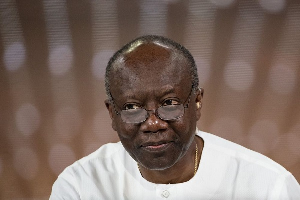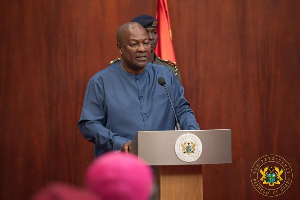Dr. Charles Ackah, a Senior Research Fellow at the Institute of Statistical, Social and Economic Research (ISSER) of the University of Ghana, has called for replacement of the National Service Scheme (NSS) with a well organised internship or volunteering system for tertiary graduates in the country.
According to him, the current NSS system did not create entrepreneurship but rather unemployed graduates who completed their service and could not acquire jobs.
Dr. Ackah, who made the call at a National Dissemination Workshop on Gender and Enterprise Development in Ghana in Accra on Tuesday suggested that a new system which must include practical training in crafts and industrial occupations must be introduced for tertiary graduates.
Additionally, government must offer incentives like subsidies and tax advantages to entrepreneurs who engage fresh graduates to encourage apprenticeship and industrial attachments.
He said to reduce unemployment in the country and promote entrepreneurs, there was the need to ensure high quality practical training especially for secondary schools in enterprises.
Dr. Ackah, who is the Lead Investigator and Co-ordinator of the Gender and Enterprise Development in Africa (GENDA) Project, disclosed that Ghanaian women were more entrepreneurial compared to their counterparts in Kenya and Uganda.
He said women owned about 72 per cent of micro and small enterprises in Ghana, adding that, there were more male owned enterprises in almost every other African country, including Kenya and Uganda.
According to him, 62 per cent and 52 per cent of medium small enterprises in Uganda and Kenya respectively were owned by men.
Dr. Ackah, who was also the Head of Economics Division at ISSER disclosed that, as much as 89 per cent of enterprises in Ghana started as “one-man” businesses, noting that, it is almost twice as much as it pertained in Uganda.
“Currently at 85.4 per cent, Ghana has the highest of “one-man” businesses in Africa. Kenya and Uganda presently have 63 per cent and 50 per cent of businesses respectively operating as purely self-employed”, he said.
A Senior Economist at the World Bank, Dr. Kathleen Beegle, noted that in most countries in sub-Saharan Africa, large shares of women were in some form of self-employment.
She identified infrastructure and cultural norms as some barriers constraining women in doing businesses on the continent and called for more support.
Dr. Nkechi Owoo, a lecturer at the Economics Department of University of Ghana stressed the need to provide entrepreneurial education at all levels of the education system to reduce the growing unemployment phenomenon in the country.
Regional News of Thursday, 20 August 2015
Source: ghanaiantimes.com.gh
‘Replace Service Scheme with volunteering system’
Entertainment












